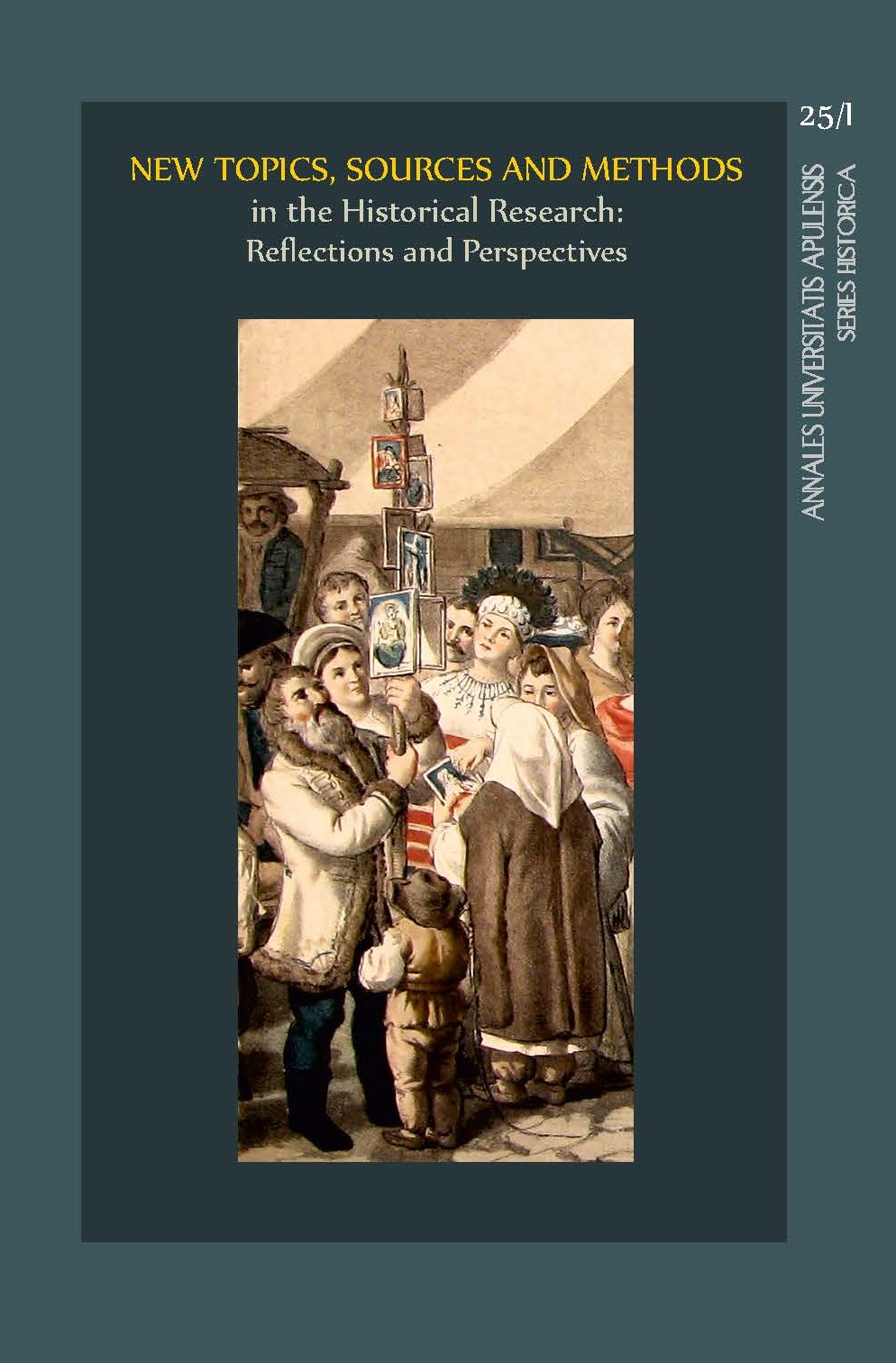Revue de Transylvanie (1934-1944): Creation, Structure and Research Themes
Revue de Transylvanie (1934-1944): Creation, Structure and Research Themes
Author(s): Sorin ȘipoșSubject(s): Cultural history, Social history, Recent History (1900 till today)
Published by: Editura Mega Print SRL
Keywords: Revue de Transylvanie; Silviu Dragomir; structure and research subjects; Transylvania;
Summary/Abstract: Revue de Transylvanie appeared in May 1934 in Cluj, at the initiative of Transylvanian intellectuals and with the financial support of ASTRA, its pages containing studies of good scientific quality, aiming at disseminating the results of Romanian historical research to the European scientific and public opinion. Our paper intends to outline the context in which the journal appeared, its editorial structure and its main contributors and topics throughout the years, as well as the context in which it ceased its activity. In the foreword to its first issue, its initiators stated the reasons for starting the journal, as well as the objectives its founders had set for themselves. Silviu Dragomir, the director of the journal, and D. D. Roşca, its first editor-in-chief, intended the Revue de Transylvanie “to be a means of informing its Western readers on Transylvania through various aspects of life in a major province of post-1918 Romania.” The founders of the publication wished for the journal to be “an objective and accurate means of information” on the ethnic issues in Transylvania and particularly on minorities. Revue de Transylvanie also aimed at investigating the relations of minorities in Romania with its majority Romanian population. The journal also appeared as a reaction to Hungarian external propaganda, which was trying to accredit the idea that, after having become a Romanian province, Transylvania experienced a regress. The journal was not founded immediately after 1918, but in 1934, when it became increasingly obvious that the political changes that had occurred in the states defeated during WWI were threatening Europe’s configuration. Even in this difficult political context, the Romanian State took a long time to get involved in financially supporting the publication.The journal achieved only some of the goals set by its founders, namely informing scientists and decision-makers in the Western states on the political and ethnic realities in Transylvania. This was due to the professionalism of the authors and their published studies on a great variety of topics, namely history, historical demography, cultural history, ethnography, linguistics, etc., as well as to the 1200 free copies distributed to specialists in the country and abroad. Regarding the contributors to the issues of the journal, although their number was over 60, only a few of them were permanent contributors: Silviu Dragomir, with 9 published studies, George Sofronie, with 8 published studies, Laurian Someșan, with 6 published studies, Coriolan Petranu, with 5 studies, Ioachim Crăciun, with 5 published studies, and Ioan Lupaș, with 4 studies. The journal was also a true training workshop for younger specialists who made their apprenticeship especially in the Notes and Reviews sections. Worth mentioning among the younger historians are Ioachim Crăciun, Aurel Decei, Ioan Moga, Andrei Oţetea, P. P. Panaitescu, Ştefan Pascu, Aurelian Sacer¬doţeanu, David Prodan and Virgil Vătăşianu. The journal contained good quality studies on a variety of topics, especially contributions on contemporary history, minority issues, international law, historical demography, language history, historical geography, etc. Revue de Transylvanie proved to be an interdisciplinary journal in terms both of published studies and articles and of its contributors’ formation. Disputes and polemics occurred mainly in Notes and Reviews. The political factor in Romania used only to a small extent the pertinent information provided by the specialists, and its editing team set itself difficult objectives, unachievable without political support.
Journal: Annales Universitatis Apulensis Series Historica
- Issue Year: 25/2021
- Issue No: 1
- Page Range: 299-317
- Page Count: 19
- Language: English

